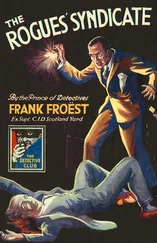Crowe gave them time to digest what she was saying. She'd thought long and hard about the best way to approach the project, and she knew that she wouldn't make progress until the myths had been debunked.
'My point is that science fiction never engages with the true alienness of non-human civilisations. Sci-fi's extra-terrestrials are grotesquely exaggerated projections of human hopes and fears. The aliens in Close Encounters symbolise our longing for a lost Eden. They're essentially angels, and that's their function: a few chosen people are guided to the light. Of course, no one's interested in whether these aliens have their own culture. They only exist to serve basic religious notions. Everything about them is human, because that's how humans would like aliens to be. Even their appearance – glowing white light and what have you – has been choreographed to suit us. The same goes for the aliens in Independence Day . They're not really alien , in so far as they just live up to our notions of evil. The movies don't allow their aliens to be genuinely different. Good and evil are human concepts, and stories that try to do without them seldom catch on. It's hard for us to accept that our values aren't shared by other civilisations, but it's a problem we face all the time. Every human culture finds aliens on its doorstep – or just across the border. To communicate with an alien intelligence, we have to understand that. It's more than likely that we won't have any common values; and if our senses aren't compatible, we may not be able to communicate in any conventional way.'
Crowe handed the stack of files to Johnson, who was sitting next to her, and asked him to pass them round the room.
'If we want to think seriously about communicating with an alien civilisation, we can begin by imagining a state run by ants. Although ants are highly organised, they're not truly intelligent, but for the purpose of the exercise, let's imagine they are. In effect, we'd be dealing with a collective intelligence that sees nothing wrong with feasting on injured members of its species, that goes to war but doesn't understand our concept of peace, that sets no store by individual reproduction, and that treats the harvesting and consumption of excrement as a kind of sacred ceremony. We'd be trying to communicate with a collective intelligence that works in a completely different way from our own. But it works ! Let's take this a step further. Suppose for a moment that we don't recognise alien intelligence, even when it comes our way. Leon, for instance, runs all kinds of tests because he wants to find out if dolphins are intelligent, but will he ever know for sure? Conversely, what would an alien intelligence think about us? The yrr are attacking us, but do they credit us with intelligence ? Do you see what I'm driving at? We're not going to get any closer to understanding the yrr until we've dispensed with the idea that our system of values is the be-all and end-all of the universe. We have to cut ourselves down to size – to what we really are: just one among an infinite number of possible species, with no special claim to being anything more.'
Crowe noticed that Li was scrutinising Johanson's expression – as though she was trying to see inside his head. There were some interesting constellations on board, she thought. Then she caught Jack O'Bannon and Alicia Delaware exchanging glances, and knew that they were more than friends.
'Dr Crowe,' said Vanderbilt, leafing through the pages of his file, 'what would you say constitutes intelligence?'
It sounded like a trick question.
'A stroke of luck,' said Crowe.
'Luck?'
'Intelligence occurs when a host of different factors unite in a specific way. How many definitions do you want? Some people think intelligence is simply whatever is deemed valuable within a particular culture. According to some people, intelligence can be analysed by examining basic thought processes, while others try to measure it statistically. Then there's the question of origin: is intelligence inborn or acquired? At the beginning of the twentieth century it was postulated that intelligence could be gauged by studying an individual's ability to master certain tasks. That's what modern-day experts base their ideas on when they define it as the ability to adapt to the demands of a changing environment. In their view, intelligence is acquired, not genetically determined, but others argue that it's an innate part of being human – an inborn capacity that helps us adjust our thinking to new situations. If you take that line, then intelligence is the ability to learn from experience and to adapt to your surroundings. And then there's my personal favourite: intelligence is asking what intelligence means.'
Vanderbilt nodded slowly. 'I see. So you don't really know.' Crowe grinned. 'I hope you won't mind my using your T-shirt to illustrate an example, Mr. Vanderbilt, but it's unlikely we'd be able to judge a being's intelligence from its appearance.'
Laughter rippled through the room and ebbed away. Vanderbilt was staring at her. Then he grinned. 'I dare say you're right.'
ONCE THE ICE had been broken, the meeting gathered pace. Crowe outlined the next steps. During the past few weeks she'd worked out a basic strategy with the help of Murray Shankar, Judith Li, Leon Anawak and some of the guys from NASA. It was based on the limited number of attempts to make contact that had been conducted in the past.
'Space makes things easy for us,' Crowe explained. 'You can send out huge packets of data in the microwave spectrum. Light is easy to spot and it travels at three hundred thousand kilometres per second. You don't need any cables or wires. It's a different story under water. Water molecules absorb the energy of short-wave signals, while for a longwave signal you'd need enormous antennae. Light waves can be used to communicate under water, but only over relatively short distances. So that leaves us with sound. But sound comes with its own particular drawback – the echo effect. Sound waves get deflected all over the place, and that leads to interference. The message would overlap with itself and become unintelligible. To get round that, we need a special modem.'
'We borrowed the principle from marine mammals,' said Anawak. 'Dolphins use it. They've essentially invented a way of outsmarting echoes and interference. They sing.'
'I thought that was whales,' said Peak.
'When we talk about whalesong, we only mean it sounds as though they're singing,' explained Anawak. 'Music may not exist to them as a concept. In this instance singing means constantly modulating the frequency and pitch of the noise. There are two advantages. You get round the problem of interference, and you increase the amount of data you're able to transmit. We'll be using a singing modem. We can get it to transmit thirty kilobytes of information over a distance of three kilo-metres. That's a lot of data – half the capacity of an ISDN line. It's enough to beam out high-resolution images.'
'So what are we going to say?' asked Peak.
'The laws of physics are expressed in mathematics,' said Crowe. 'They're the cosmic code that gave rise to consciousness in the first place, allowing humanity to understand math. Math is life's way of explaining its own origins. It's the only universal language that any intelligent being subject to the same physical conditions would understand. It's the language we'll use.'
'How? Are you going to make them do sums?'
'No. We're going to express our thoughts in math. In 1974, SETI fired a powerful radio wave from Earth towards a globular cluster in the constellation of Hercules. We sent 1679 characters, all expressed in binary pulses – ones and zeros, like the dots and dashes of Morse code. A mathematician would know what to do with the number 1679 because it's the unique product of two prime numbers, 23 and 73, numbers only divisible by one and themselves. In other words, the basics of our numerical system were contained within the structure of the message. The 1679 pulses separate into 73 columns, each containing 23 characters. Well, a little mathematics goes a long way, and if you turn the dots and dashes into black and white blocks, lo and behold, a pattern will emerge.'
Читать дальше












